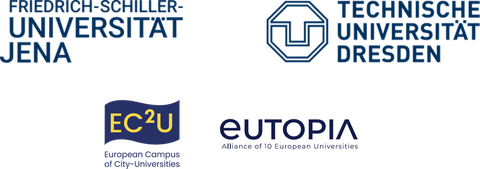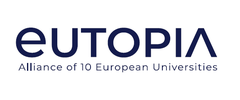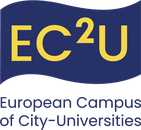International Staff Training Week 2025
Advanced Project Management for Erasmus+ KA2 Projects
General information
Abstract
This International Staff Training Week will focus on training and networking of professional staff who manage Erasmus+ KA2 projects.
It will deal with all phases of KA2 projects, from (strategic) project planning and application via implementation, financial management, sustainability and impact. Special emphasis will be put on the collaboration and experiences within European University Alliances.
Objectives
The International Staff Training Week aims to train participants for the advanced and successful management of Erasmus+ KA2 projects, facilitating the exchange of best practices and expertise among speakers and attendees. It seeks to enhance skills in planning and communication as well as in project and financial management. Dedicated sessions will deal with success indicators, quality assurance and sustainability. On top of that, the event will encourage effective cross-cultural communication and collaboration among staff from the participating universities.
Expected outcomes and impact
Through the individual sessions and the knowledge exchange among the participants we aim to identify best practices and develop recommendations for high-quality Erasmus+ project management. Additionally, the event seeks to improve collaboration among professionals and to increase the amount and quality of project proposals within and across European Alliances.
Participants’ profile
We are looking for university staff members with expertise in managing Erasmus+ projects. We are especially encouraging project management staff from different European University Alliances to apply.
Selection criteria
- Participants’ expertise in the field of the topic of this staff training
- Participants’ contribution to the topic of the training
- Participants coming from partner universities, especially from the EUTOPIA or EC2U Alliances
Selected participants will be announced on 06 June 2025
Practical information
Travel and accommodation expenses can be covered through Erasmus+ KA131 Staff Mobility for Training. Please check this option at your university.
Please don’t make any travel arrangements until you receive our confirmation. We will provide you with practical information, including accommodation suggestions, at a later stage.
Preliminary programme
Monday,15 September, 10:00-20:00, Jena
Kicking off the staff week | Kicking off a KA2 proposal
Welcome and Introduction to the Staff Training Week
Intercultural surprises
Getting to know each other
Campus tour
Topic in focus: Preparation of competitive KA2 applications (Getting researchers’ attention for Erasmus+ – Giving advice – Going into the application’s details – Gaining an insight into how other institutions do it)
Presentations: Best practices from participants’ universities
Welcome reception
Tuesday, 16 September, 9:00-16:00, Jena
Navigating Erasmus+ KA2 proposals at institutional level
Topic in focus: Strategic Planning of Erasmus+ proposals at institutional level and within Erasmus+ University Alliances
Presentations: Best practices from participants’ universities
Bus transfer to Dresden
Dresden City Tour and optional joint dinner
Wednesday, 17 September, 9:00-16:00, Dresden
Erasmus+ KA2 project implementation
Topic in focus: Successful project and lump sum management in Erasmus+ KA2 projects
Presentation: European Project Center at TUD
World Café: Implementing Complex European Projects
Presentations: Best practices from participants’ universities
Optional: Cultural programme
Thursday, 18 September, 9:00-16:00, Dresden
Erasmus+ KA2 successful project completion
Topic in focus: quality of project implementation, all about indicators, impact and sustainability
Presentations: Best practices from participants’ universities
Farewell dinner
Friday, 19 September, 9:00-15:00, Dresden
Erasmus+ KA2 lobbying
Topic in focus: Influence on future programme generations, Cooperation with National Agencies and EACEA, Communication channels
Presentation: The CESEAR network (TUD)
Presentations: Best practices from participants’ universities
Wrap-up and options for future collaboration





